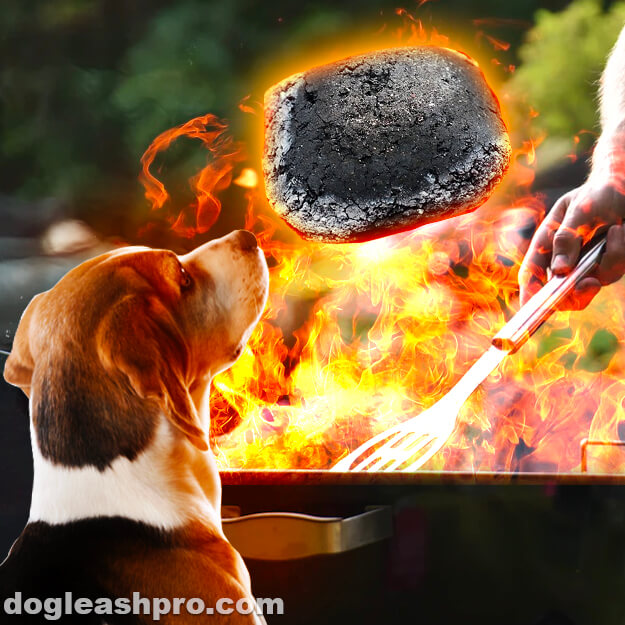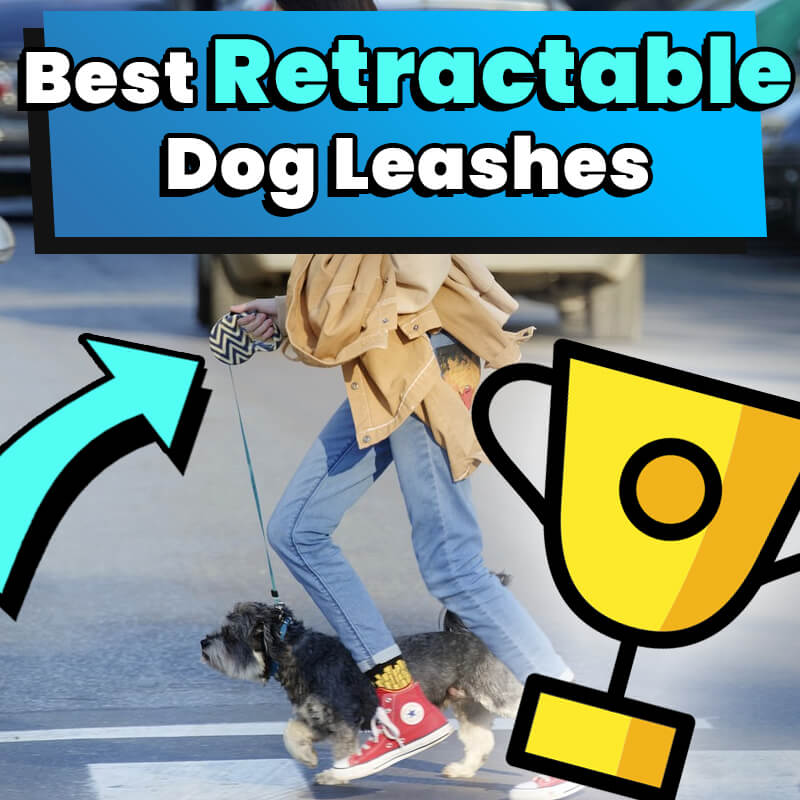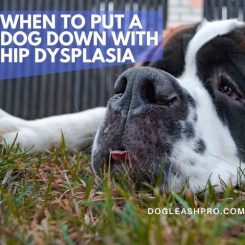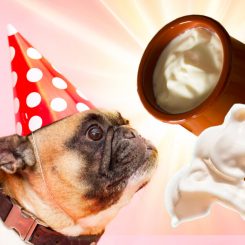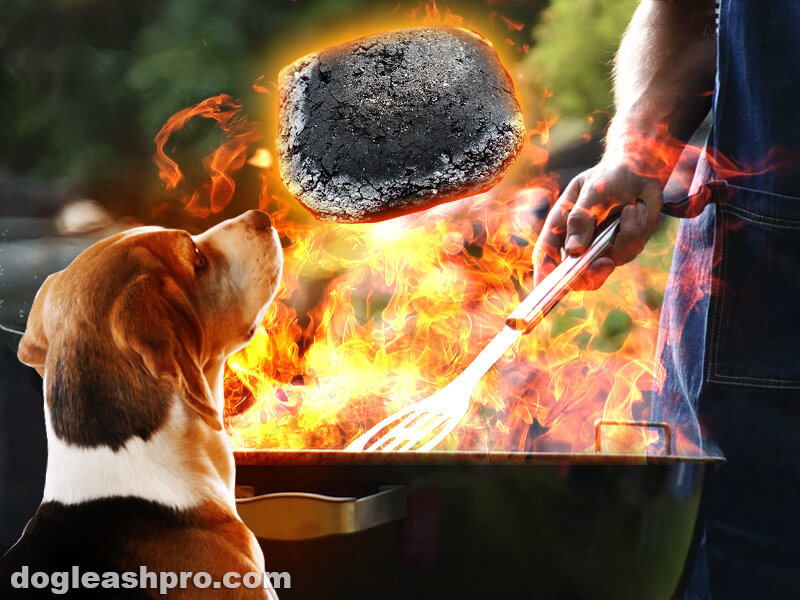
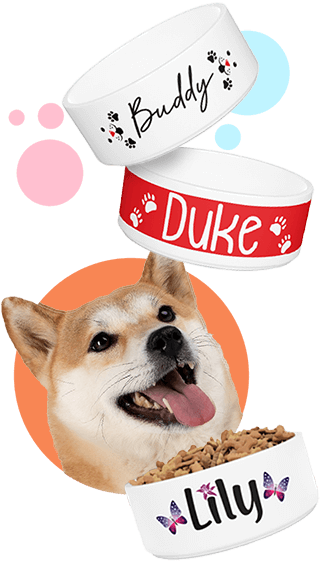
My family loves to grill burgers, corn, potatoes, chicken, Tamales, and pork chop every summer. As soon as the temperature allows us to start grilling, our Charcoal grill comes out of the garage. We have to be extra careful because last summer, one of our dogs almost bit into one of the Charcoals and that would not have ended well.
Can dogs eat Charcoal? No, dogs should not eat Charcoal! It’s best to keep dogs away from Charcoal. Sometimes, dogs will try to eat Charcoal if it is from a grill and has the smell and taste of meat. This is unsafe and unhealthy for dogs. Charcoal cannot be easily digested and when it is hot, it can burn the dog’s mouths, tongues, and even esophagus.
There is an exception, and that is when it is activated Charcoal. Even then, it’s not always an ideal remedy. Taking activated Charcoal often brings with it another set of health problems and side effects in dogs. The differences between these two types will be explained further down.
Table of Contents
Is Charcoal bad for dogs?
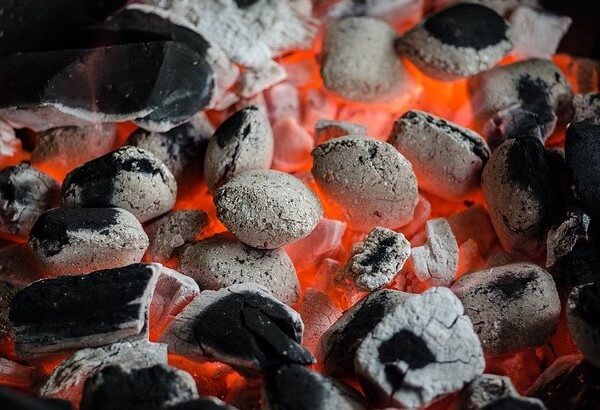
Yes, Charcoal is bad for dogs for several reasons. Charcoal has a low density and does not absorb moisture well due to its low porosity. Once burned, there are harmful substances in the ash. Here are seven main reasons why dogs should not eat Charcoal:
1. Ashes contain toxic residues that are harmful to dogs
Charcoal ashes contain toxic residues such as potassium, sodium nitrites, lighter fuel, adhesives, and binders.
2. May cause blockages in the dog’s intestines
Charcoal is indigestible. This means a piece of Charcoal that is too big might get stuck in the dog’s intestines and cause a blockage.
Additionally, a piece of Charcoal can also get lodged in your canine friends’ esophagus and this can lead to asphyxiation unless they can vomit it up.
3. Cause painful burns in your dog’s mouth and throat
If your furry friend ingests the Charcoal while it is still burning, there is a high possibility that your pooch may burn his mouth, tongue, esophagus, and gums. This is a very painful experience. When this happens, make sure you bring your four-legged friends to the veterinary hospital right away.
4. May cause stomach upsets in dogs
It’s important to note that Charcoal ash contains harmful additives. Charcoal often has lighter fluid or other accelerants added. It gets the fire lit and burning faster. This accelerant is toxic and can cause dogs who lick the Charcoal ash to get an upset stomach or constipation.
Charcoal ash is just as bad as the Charcoal itself and it can contain potassium, sulfur dioxides, and petroleum.
5. Cause loss of appetite and lethargy in dogs
Accidentally eating Charcoal can cause lethargy and loss of appetite in dogs. Their condition will improve once the toxins pass through your pup’s body.
Taking activated Charcoal may help to speed up the toxin removal process.
Fun Fact: When dogs eat food that contains high content of garlic or onion, salt, and nutmeg, they may also start to become lethargic and lose their appetite due to these toxic ingredients.
6. Can cause dogs to vomit or have diarrhea
When dogs accidentally eat Charcoal, they can start to vomit or have diarrhea. Both of these reactions can lead to the dog losing essential electrolytes. As a result, they may get dehydrated and excessive thirst and urination may occur.
If your furry friend is predisposed to kidney or renal failure, these side effects may make the kidney condition worse.
7. Dogs may possibly develop muscle tremors and seizures after eating Charcoal
The tremors and muscle spasms are from vomiting and loss of electrolytes. Take your pooch to the veterinarian before the conditions get this serious. In some situations, IV treatment may be needed.
Older dogs may even get heart palpitations after accidentally eating Charcoal.
How much Charcoal can a dog have?
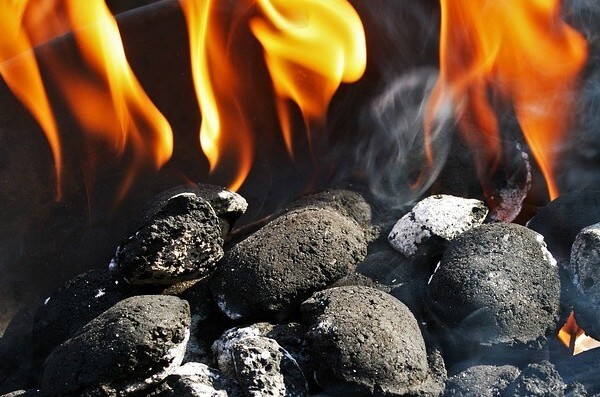
There are two types of Charcoal. The first one is the Charcoal that you use in a Charcoal grill. This Charcoal will cause harm because it contains toxic additives. The second one is called activated Charcoal.
Activated Charcoal for dogs
Activated Charcoal is of food-grade quality. In addition to it being used in cosmetics, activated Charcoal is also used to expel toxins by binding to the toxins and then passing out through the feces.
Activated Charcoal dosage for dogs
How much activated Charcoal dosage to give your pooch really depends on their body weight. The activated Charcoal has dosage guidelines inside or on the pack. For every 1 pound that the dog weighs, you can give between 0.5 to 1.5 grams of activated Charcoal.
This means that:
- A small dog weighing 10 pounds would need 5 to 15 grams of activated Charcoal.
- A medium dog weighing 50 pounds would need 25 to 75 grams of activated Charcoal.
- A large dog weighing 80 pounds would need 40 to 120 grams of activated Charcoal.
They must be given a dose of activated Charcoal every 4 to 8 hours, but it depends on what and how much Charcoal your pooch has ingested.
It’s important to keep in mind that activated Charcoal does not bind to all poisons. If you’re still unsure, it’s always best to consult with your vet for specific answers.
Why do dogs eat Charcoal?
Sometimes dogs develop a condition called “pica.” Dogs with this condition will eat non-food items and substances. In most cases, it could be due to the fact that your furry friend is lacking something nutritional in his diet.
But there is another reason. If you’re using the Charcoal grill to barbeque, some of the fats from the pork, steak, or burgers may drip onto the lumps of coal. The coal will then have the meat smell due to the fats that are covering it and this smell may attract your pooch to it.
It’s normal for any curious dog to taste the Charcoal as a way to explore what it is and as a result, they may lick or nibble at it.
One way to cure this is to feed your furry friend papaya. Papaya is a healthy treat for your pooch. This fruit contains a digestive enzyme that helps to break down food and can help with intestinal blockages. Papaya is also high in fiber. After taking a few bites of the papaya, it should help stop your pooch from eating non-food substances.
Is Charcoal safe for dogs?
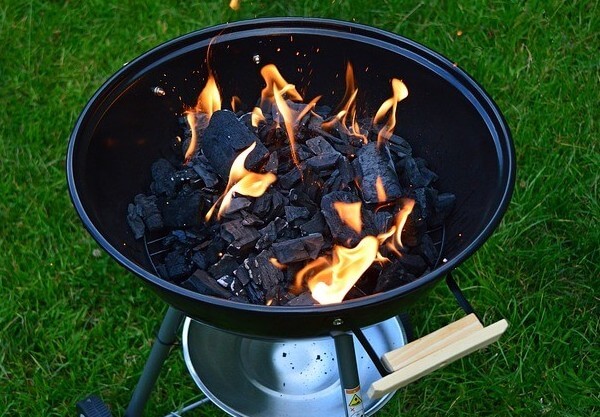
No, Charcoal is not safe for dogs. There are additives put into commercial Charcoal that is very toxic to dogs when they’re ingested. Also, Charcoal for barbeques (BBQ) is made differently from the activated Charcoal that gets used medicinally to help expel foreign substances and certain toxins in dogs.
Activated Charcoal is safe for dogs because it comes from natural sources. Natural sources include:
- Bamboo.
- Coconut shells.
- Peat.
- Wood from trees that don’t emit toxins from the bark.
- Sawdust.
- Sugar cane.
Also, activated Charcoal gets chloride salts added to it. This increases porosity and surface area of the Charcoal.
Charcoal that is made for barbeques and camping fires are made differently, have different properties, and contain additives. The ash from this type of Charcoal can contain toxins like:
- Potassium, also called Potash. Potassium or Potash found in Charcoal is not the same form that is found in fruits and vegetables.
- Sulfur dioxide.
- Petroleum.
- Lighter fluid.
- Borax.
- Sodium nitrite (a preservative that, when combined with proteins forms nitrosamines. Nitrosamines can become carcinogenic which is dangerous to dogs).
Let’s get a full understanding of what Charcoal is, where it comes from, what is in Charcoal, and how it is made.
What is Charcoal?
Charcoal is the black carbon byproduct, the result of burning wood, slowly, at high temperatures in low oxygen conditions. This removes water and unstable compounds. The leftover product is Charcoal.
Is activated Charcoal the same as Charcoal?
Coal is not the same as Charcoal. And activated Charcoal is not the same as “commercial” Charcoal or coal.
Where does Charcoal come from?
Charcoal is man-made. Activated Charcoal is also man-made, but the process is different. And so are the end products.
It’s important to not get Charcoal confused with coal. Coal is a natural energy resource. It gets used chemically to produce a range of synthetic derivatives. It is a nonrenewable resource.
Charcoal can be made from wood but due to the high demand for it, the addition of additives, binders, adhesives, and lighter fuels get added. Other materials that are considered waste may also be added.
Fun Fact: Coleslaw is a nice side dish to many barbeque dishes. Find out whether dogs can eat coleslaw in our article, Can Dogs Eat Coleslaw?
What is in Charcoal?
Commercial Charcoal are compressed blocks of lightweight carbon that are sourced from wood and other waste materials. Waste materials can be anything from coconut shells, sawdust, peat, and wood offcuts.
Charcoal contains additives such as lighter fuel. It also has binding and adhesive agents. These additives help manufacturers to create a product that is uniform and compact and that won’t crumble. Binders include starch, clay, molasses, and gum Arabic.
How is Charcoal made?
The wood and other materials are burned slowly, at extremely high temperatures, and in low oxygen conditions. This gets rid of water and other volatile compounds. Sometimes these gases and compounds can be captured for use in other ways.
The black carbon that is left is called char. From here, binders and additives get added to produce lumps of Charcoal or pressed Charcoal briquettes.
What happens if a dog eats Charcoal?
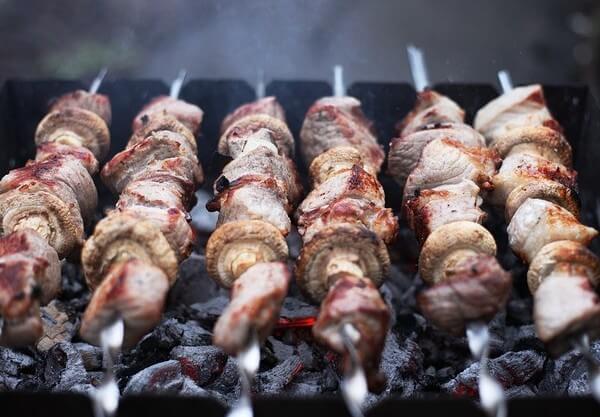
If only a small amount of Charcoal is ingested, your canine friends will most likely be fine and will not show any effects. The one concern is that Charcoal causes a blockage, either in the esophagus or in the intestines.
First, find out how much Charcoal your dog ate. Were just the ashes ingested or was a fair-sized chunk, or even a whole briquette, swallowed? Consider the health, age, and size of your pooch as well.
If you suspect that your pup ate Charcoal, make sure to watch them closely. Did they swallow a briquette? Or did they lick the ashes? Were the ashes or coals still hot when they licked it? Watch to see if they get thirsty or start urinating a lot. If they start vomiting or develop diarrhea then take them to the vet immediately.
Symptoms to watch for
Here’s what to expect if a dog eats Charcoal:
Burn damage
Hot coals and ashes can cause burns on the tongue, the roof of the mouth, gums, lips, and even down the esophagus of your dog. If you have aloe vera or Bulbinella growing in your garden, you can crush the leaves and apply the slimy gel onto the burnt areas. This will soothe the pain until you can get your pooch to the vet.
Choking
If your canine friend starts to choke, it might be because the Charcoal piece is stuck in his throat. Instead of sticking your finger down his throat and see if you can feel anything blocking his esophagus, it’s best to call your vet immediately or rush him to the veterinary hospital as soon as possible.
Dogs that are already undergoing distress may react by biting or snapping so sticking your fingers down his throat is not a good idea. You may accidentally get your fingers bitten off.
Handy Hint: Be careful when feeding your dogs food or bones that can be a choking hazard. For example, if you feed your pooch Pig Feet, be sure the bones are large enough so he can’t swallow them.
Swollen abdomen
Dogs with swollen abdomen after ingesting Charcoal could mean that there is an internal blockage in the intestines. Charcoal is indigestible. If there is a blockage, your four-legged friends will be constipated. Anything else that is being fed to him will cause more swelling of the abdomen.
It is advisable to visit the vet in this case. Do not try to induce vomiting. This could cause internal damage and the Charcoal lump may get stuck somewhere further up the intestines.
Diarrhea
This is a better situation than a swollen abdomen as it indicates no blockage. And your dog’s body is getting rid of toxins in a natural way. Check to see if there is black Charcoal in the feces.
Vomiting
Vomiting is also a good sign. If your canine companion throws up and the Charcoal ashes or chewed bits are visible, it means the toxins from the ash may not cause as much damage as they could have. But it does not mean all the toxins are out. So you must still watch for loss of appetite, nausea, and further problems with bowel movements.
Treatments if your dog has poisoning from ingesting Charcoal
It is better to take your pooch to the veterinarian as soon as possible. The vet will administer the activated Charcoal via a syringe or stomach tube. He or she may also be able to induce vomiting if need be. And if there is a blockage your vet can do something whereas dog owners cannot.
Is activated Charcoal safe for dogs?
Yes, activated Charcoal is safe for dogs as it is a safe and natural way to help them expel toxins.
Activated Charcoal is safe for dogs to take if they have ingested something poisonous or the food or item caused an allergic reaction or discomfort.
How can activated Charcoal help dogs?
As opposed to Charcoal, which is primarily used for heating and cooking, activated Charcoal is used for filtration and purification. Activated Charcoal is far more porous than Charcoal and has a greater surface area. It is also more absorbent.
The activated Charcoal moves through the digestive tract and on its journey loads up with all the substances that haven’t entered the bloodstream yet.
Activated Charcoal binds to toxins and toxins get expelled through defecation. Activated Charcoal doesn’t get absorbed or metabolized before it passes out of the body.
Fun Fact: Activated Charcoal has an earthy and smoky taste with a bit of bitter flavor. Bitter Melon is a vegetable that also tastes bitter but is good for dogs in moderation.
When to administer activated Charcoal for dogs?
It’s important to administer the activated Charcoal as soon as possible if you suspect your furry family member has eaten something poisonous. Give it to them 1 to 2 hours after the poison has been eaten.
Certain poisons won’t be absorbed by activated Charcoal. If you suspect any of these have been ingested, take your pup to the vet as soon as possible.
Activated Charcoal works for the following toxins:
- OTC (over-the-counter) medications.
- Prescription drugs and illegal narcotics.
- Cannabis.
- Aspirin.
- Fertilizers.
- Pyrethrins.
- Insecticides.
- Strychnine.
Activated Charcoal won’t work for:
- Xylitol.
- Alcohol.
- Heavy metals.
- Iron.
- Potassium.
- Lithium.
Most dog owners will give their pooch activated Charcoal when they suspect their dog has eaten something toxic and wants it expelled. In the case of poisoning, it is better to bring your canine companion to the vet as soon as possible.
How to administer activated Charcoal for dogs
Activated Charcoal comes in liquid suspension, granules, tablets, and capsules. When giving your pooch the dosage make sure the measurement is in grams and not milligrams.
The best way to give it to your dog orally, using a large syringe. Mix granules with water if you don’t have suspension. Adding to food is not reliable as the dog may have a blockage or have lost his appetite.
It is best to let the vet handle this if you can get your dog to the vet within an hour after ingesting poison. The longer you wait the less effective the absorption of toxins will be.
So, can dogs eat Charcoal?
In conclusion, it’s best to keep Charcoal away from dogs especially if you’re using a Charcoal grill. Charcoal is extremely dangerous to dogs if ingested. Make sure to take necessary steps like bringing your canine friends to the vet immediately if you suspect they have eaten Charcoal.
When it comes to activated Charcoal, be sure to confirm with your vet first before giving it to your pooch. Time is of the essence when dogs ingest something poisonous. Make sure to bring them to the vet immediately or give them activated Charcoal within 1 hour, even sooner if possible.
Related Questions
If you suspect your dog has food poisoning, consult with your vet to see if giving activated Charcoal would help. Compared to Charcoal, dogs can take activated Charcoal if they have any type of poisoning.
Yes, if they are activated Charcoal tablets and not Charcoal briquettes.
Absolutely not, because activated Charcoal binds to other substances in the digestive system. That means it will also bind to nutrients. So giving your canine friends activated Charcoal every day may lead to nutrient deficiencies over time.
It depends. If your dog ate something toxic, giving your pup activated Charcoal within an hour or two after they eat is useful. If your pups are eating well and healthy food, there is not need to give them activated Charcoal after they eat. Doing so will cause the nutrients in food to bind to the activated Charcoal and this may lead to nutrient deficiencies.
Yes, food-grade Charcoal or activated Charcoal is safe for dogs. If your pooch ate something toxic, take food grade Charcoal and not the Charcoal used in Charcoal grill.
No, but in very rare cases they may die. But this may be from an underlying or pre-existing condition like renal failure or cancer in the liver or pancreas. Or perhaps an allergy to the wood that was used to make the Charcoal (like oleander) or it could be from the accelerants that get added.
A dog may choke to if a piece of Charcoal gets lodged in his throat. But he may manage to vomit it up.
Generally speaking, the chances of your dog dying from eating Charcoal, even in high doses is minimal.
If there is a blockage and you don’t take your dog to the vet in time, they may die.
DISCLAIMER: THIS WEBSITE DOES NOT PROVIDE MEDICAL ADVICE
The information, including but not limited to, text, graphics, images and other material contained on this website are for informational purposes only. No material on this site is intended to be a substitute for professional veterinary advice, diagnosis, or treatment. Always seek the advice of your veterinarian or other qualified health care provider with any questions you may have regarding dietary needs.
Resources:
https://en.wikipedia.org/wiki/Charcoal
https://en.wikipedia.org/wiki/Activated_charcoal_(medication)

With over five years of specialized experience as an animal writer, my expertise lies in dog nutrition, health, behavior, grooming, and training. I am dedicated to delivering helpful and informative content that caters to the well-being of our furry friends. My primary goal is to empower pet owners with knowledge and ensure our canine companions thrive in health and happiness. In my free time, I love volunteering at local dog rescue centers.
